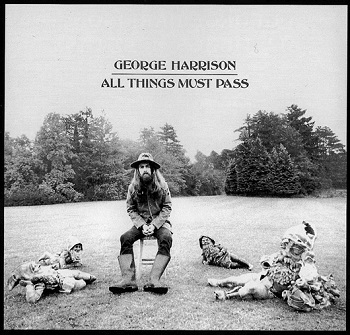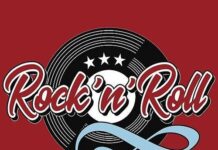The first box set of any consequence, All Things Must Pass is representative of everything George Harrison ever wanted to do, but was – at that time – never allowed to expand on. While his former band mates – in particularly, John Lennon and Paul McCartney – squabbled about how exactly they’d break up the world’s biggest musical act, Harrison went for broke and unearthed an unprecedented triple-record set just in time for Christmas, 1970. Even with a high price tag that toppled over $10, All Things Must Pass went to Number One, making it – at that time (once again) – the most successful album by a former Beatle.
Although it’s debatable as to whether or not Harrison was giving us grade A material, rejected songs from his Beatle days, or unconsciously copied riffs (“My Sweet Lord”), All Things Must Pass nonetheless lives up to its scope and range in every other aspect. The stellar musical cast includes Eric Clapton, Ringo Starr, Badfinger, Dave Mason, Gary Brooker, Billy Preston, Ginger Baker, Klaus Voorman, Alan White, Bobby Keys, Gary Wright, Jim Price, and Derek and the Dominoes members – Jim Gordon, Bobby Whitlock and Carl Radle. With Phil Spector behind the board, a dense wall of reverb closes in on much of the album, giving it a somewhat hollowed, yet heavily ladened ambiance. And while “My Sweet Lord” with its enchanting chorus of Hare Krishna zoomed to the top of the charts before the Chiffons cried wolf, the first two LPs are laced with plenty of potent ingredients in the form of “Wah-Wah,” “What Is Life,” “Isn’t It A Pity,” “Beware Of Darkness” and the title track. Another heavyweight who lent a hand is Bob Dylan, who uncharacteristically co-wrote the lead-off track, “I’d Have You Anytime” with Harrison while contributing an original of his own, “If Not For You.”
The third LP – which has since been integrated into a two-CD set (re-released with bonus material in January 2001 in commemoration of the album’s 30th anniversary) – was more or less a frivolous afterthought. Simply entitled Apple Jam, this LP is mostly made up of impromptu studio jams with Clapton and Harrison at the forefront. The lone vocal track on Apple Jam is a silly little ditty where Harrison apparently recruited former Beatles henchman, the late Mal Evans, for a little tea and sympathy. Having found peace with himself through intense spirituality and confidence, George Harrison continued to ebb and flow as a solo artist even as he was haunted by the success he found with the Fab Four. For the quiet Beatle, all things eventually did pass.




















